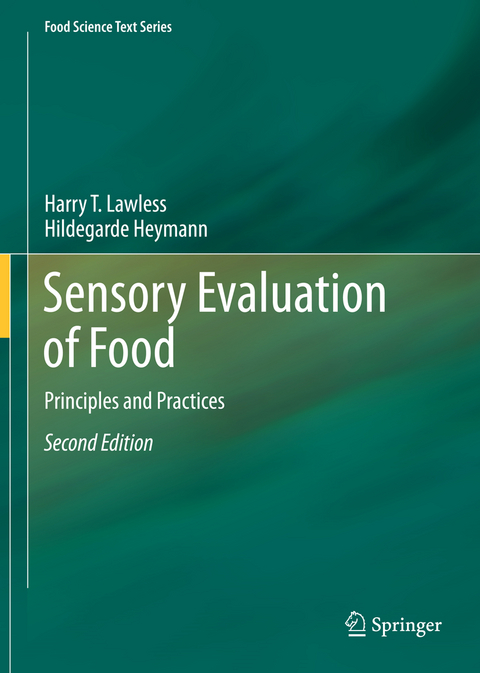
Sensory Evaluation of Food
Springer-Verlag New York Inc.
978-1-4939-5039-3 (ISBN)
The ?eld of sensory science has grown exponentially since the publication of the p- vious version of this work. Fifteen years ago the journal Food Quality and Preference was fairly new. Now it holds an eminent position as a venue for research on sensory test methods (among many other topics). Hundreds of articles relevant to sensory testing have appeared in that and in other journals such as the Journal of Sensory Studies. Knowledge of the intricate cellular processes in chemoreception, as well as their genetic basis, has undergone nothing less than a revolution, culminating in the award of the Nobel Prize to Buck and Axel in 2004 for their discovery of the olfactory receptor gene super family. Advances in statistical methodology have accelerated as well. Sensometrics meetings are now vigorous and well-attended annual events. Ideas like Thurstonian modeling were not widely embraced 15 years ago, but now seem to be part of the everyday thought process of many sensory scientists. And yet, some things stay the same. Sensory testing will always involve human participants. Humans are tough measuring instruments to work with. They come with varying degrees of acumen, training, experiences, differing genetic equipment, sensory capabilities, and of course, different preferences. Human foibles and their associated error variance will continue to place a limitation on sensory tests and actionable results. Reducing, controlling, partitioning, and explaining error variance are all at the heart of good test methods and practices.
Harry T. Lawless is Professor of Food Science at Cornell University where he teaches sensory evaluation. He has 35 years of experience in chemosensory research and psychophysics. He spent five years in consumer testing in industry, and serves as a consultant to various food and consumer products companies on sensory test methods. Hildegarde Heymann is Professor of Viticulture and Enology at the University of California at Davis where she teaches sensory evaluation of wine and sensometrics. She spent nearly 17 years at the University of Missouri as a professor of sensory science.
Physiological and Psychological Foundations of Sensory Function.- Principles of Good Practice.- Discrimination Testing.- Similarity, Equivalence Testing, and Discrimination Theory.- Measurement of Sensory Thresholds.- Scaling.- Time–Intensity Methods.- Context Effects and Biases in Sensory Judgment.- Descriptive Analysis.- Texture Evaluation.- Color and Appearance.- Preference Testing.- Acceptance Testing.- Consumer Field Tests and Questionnaire Design.- Qualitative Consumer Research Methods.- Quality Control and Shelf-Life (Stability) Testing.- Data Relationships and Multivariate Applications.- Strategic Research.- Erratum to: Similarity, Equivalence Testing, and Discrimination Theory.
| Erscheinungsdatum | 19.08.2017 |
|---|---|
| Reihe/Serie | Food Science Texts Series |
| Zusatzinfo | XXIII, 596 p. |
| Verlagsort | New York |
| Sprache | englisch |
| Maße | 193 x 260 mm |
| Themenwelt | Medizin / Pharmazie ► Medizinische Fachgebiete ► Neurologie |
| Naturwissenschaften ► Biologie ► Biochemie | |
| Naturwissenschaften ► Biologie ► Humanbiologie | |
| Naturwissenschaften ► Biologie ► Zoologie | |
| Technik ► Lebensmitteltechnologie | |
| Schlagworte | Food • food science • Neuroscience • quality control • Sensory Evaluation • stability |
| ISBN-10 | 1-4939-5039-8 / 1493950398 |
| ISBN-13 | 978-1-4939-5039-3 / 9781493950393 |
| Zustand | Neuware |
| Haben Sie eine Frage zum Produkt? |
aus dem Bereich


